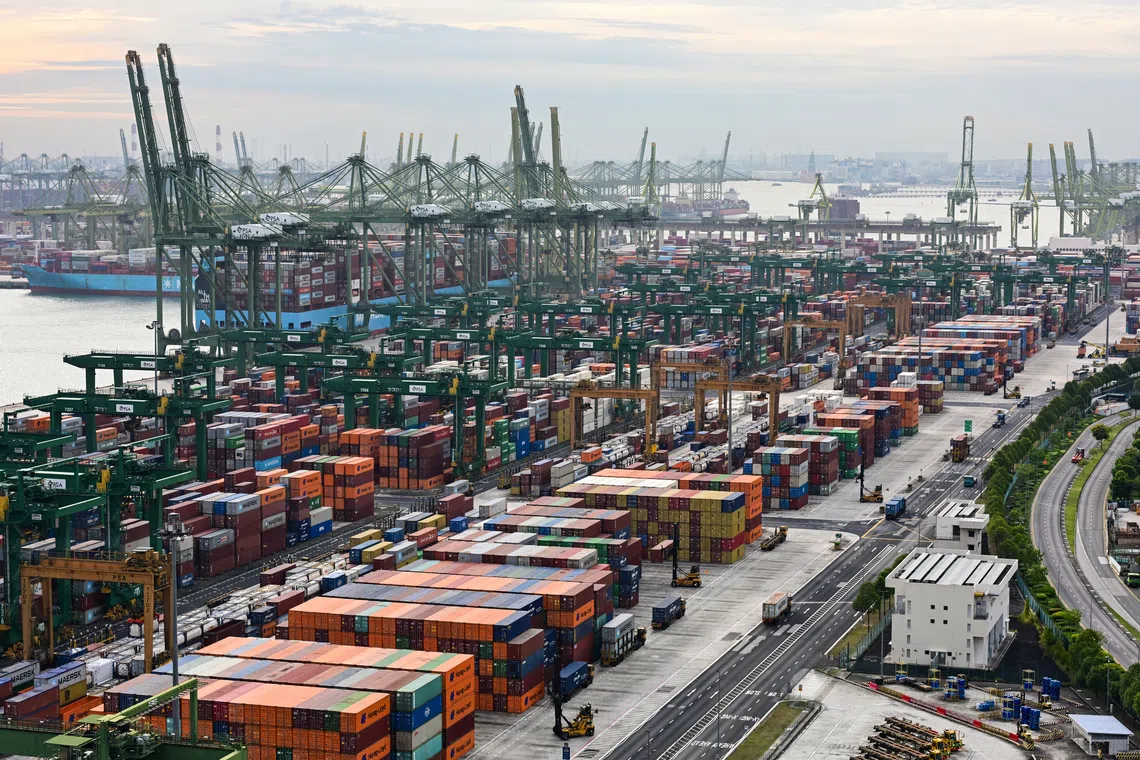Singapore’s talks with the US on sectoral tariffs still at ‘early stage’: PM Wong
Sign up now: Get ST's newsletters delivered to your inbox

Prime Minister Lawrence Wong said tariffs were not discussed in detail during meetings, though bilateral discussions between the US and individual Asean countries are ongoing.
ST PHOTO: LIM YAOHUI
- Singapore's talks with the US on semiconductor tariffs are "at a very early stage", with no detailed discussion during the Asean Summit.
- PM Wong states Singapore doesn't need reciprocal tariff deal with the US due to its existing free trade agreement.
- Asean aims to stay open and engage all partners amid global competition, fostering an inclusive platform for major powers.
AI generated
KUALA LUMPUR – Singapore’s talks with the United States on sectoral tariffs for semiconductors – a key export for the Republic – remain “at a very early stage”, said Prime Minister Lawrence Wong, as he reaffirmed Asean’s resolve to keep engaging all partners in a shifting global trade landscape.
“For now, there’s still not a lot of clarity around how America intends to apply these sectoral tariffs – for example, where pharmaceuticals are concerned,” he said on Oct 28, of Washington’s 100 per cent tariffs on branded drug products, which have since been put on hold. The US has yet to announce its sectoral tariffs for semiconductors.
He was speaking in response to a question from the Singapore media on whether tariffs had come up in Asean leaders’ discussions with US President Donald Trump in Kuala Lumpur.
PM Wong said tariffs were not discussed in detail during these meetings, though bilateral discussions between the US and individual Asean countries are ongoing.
Of the discussions with Mr Trump, PM Wong said they “were very much at the broader strategic levels around the partnership that America has with Asean countries”.
There was “strong mutual appreciation and desire to keep that relationship strong”, he said.
During the summits, reciprocal tariff deals or frameworks between the US and four Asean countries – Malaysia, Cambodia, Thailand and Vietnam – were announced.
PM Wong said that questions have arisen over why one was not inked with Singapore.
“Some people ask us, different countries are signing trade agreements with the US. Why hasn’t Singapore done so?”
He explained that Singapore did not need to do so as it already has a free trade agreement with Washington. “We are at a baseline of 10 per cent, and America is not going below 10 per cent, so we are not pursuing such agreements.”
He also noted that sectoral tariffs potentially will apply even after countries have signed agreements with the US.
Both semiconductors and pharmaceuticals are major exports for Singapore to the US, with the latter accounting for about 13 per cent of its domestic exports to the US.
The sectoral tariffs on pharmaceutical products were meant to kick in on Oct 1, but have since been put on hold to allow the administration to negotiate deals with companies. In September, Deputy Prime Minister Gan Kim Yong said Singapore was looking into the possibility of a cap on the tariff rate
Part of the Trump administration’s broader push to move manufacturing back to the US and chip away at China’s dominance of various supply chains, the sectoral tariffs are expected to cover key industries including chips, electric vehicle components and pharmaceuticals.
Asean held separate summits with the US and China as it does every year, and both “went very well because all of Asean, every single Asean country, wants to have good relations with both America and China”, said PM Wong.
Asked how Asean is navigating the growing rivalry between the US and China, PM Wong said the region’s goal is to keep both powers closely engaged, not isolated.
He noted that all Asean countries want to maintain strong ties with both, given that America remains a major source of investment and technology, while China is the grouping’s largest trading partner.
“We may be in transition to a multi-polar world, but we are certainly not there yet,” he said, later adding that this is why it is important for Asean to continue engaging all the major powers.



